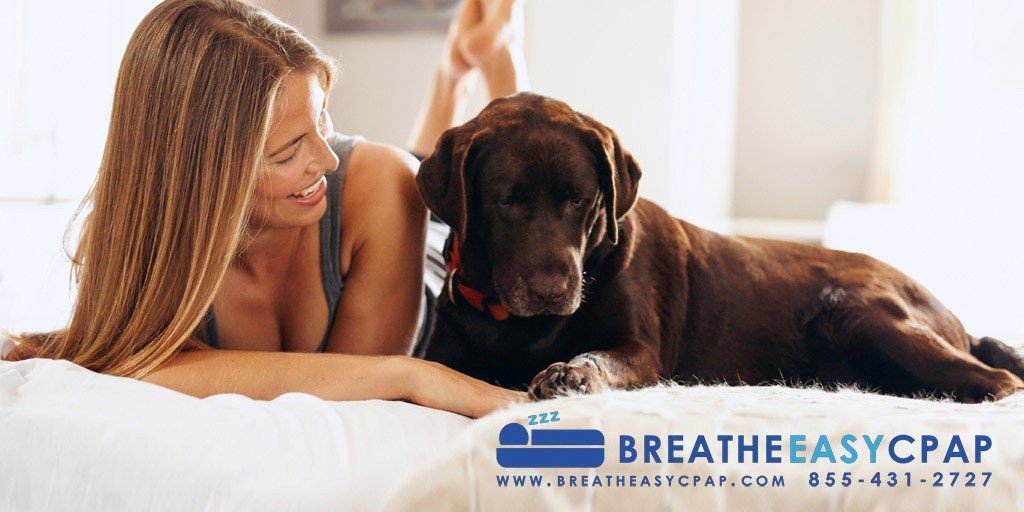Why Do Dogs Snore?
Is there anything sweeter than seeing the telltale signs that your beloved dog has fallen into a deep sleep? The corners of their mouths curl into smiles, they twitch their legs in a dream, and, just like their owners, they sometimes snore.
Humans snore for varied reasons including allergies, sinus issues, aging, and normal changes in their soft palates during rest. Occasionally however, humans snore from a serious condition called sleep apnea. As is true with humans, it is just as important to take your pet’s snoring seriously and become educated on what might be the cause.
Allergies and Obesity Might be the Cause of Your Dog’s Snoring
Second-hand smoke, incense, household cleaners, and mold or dust may be affecting your pet’s healthy breathing. These irritants sometimes promote the constriction of the animal’supper airways, causing their breathing to become noisy as air passes through the narrowed area.
If you have noticed that, your dog has grown a little pudgier than normal, excess weight could be responsible for a recently developed case of snoring. If you think, your pet is overweight, start by getting them outside for exercise more often. Next, talk to their veterinarian about starting a low-calorie dog food.
Sometimes, snoring in dogs is the result of a tumor, a dental problem, or a fungal disease. These issues are treatable but, if ignored, can be fatal. Bring your pet to the veterinarian for regular check-ups to keep an eye out for development of any serious illness.
Boxers, Pugs, and Other Short-nosed Dogs are More Prone to Snoring
Another cause of snoring that your veterinarian may need to look into is Brachycephalic Syndrome, a series of respiratory problems found in dogs with short noses or flat faces. Shih-Tzu’s, Bulldogs, and boxers are examples of canines who are prone to this condition. If your brachycephalic dog is snoring or showing signs and symptoms of an increased difficulty in breathing, talk to your vet about possible treatment options.
Can Dogs Develop Sleep Apnea?
All dogs are at risk, but brachycephalic dogs are more likely to develop sleep apnea than any other breeds. Just like humans, dogs may experience a momentary lapse in breathing while asleep and sometimes, in dogs, the condition is fatal. Your vet will first encourage you to start your pet on a weight loss program if obesity is a factor in their respiratory issue. They may also suggest using a warm air humidifier near the area your that dog sleeps, as this has been shown to promote the opening of upper airways. In severe cases, surgery to open the nostrils may be necessary.
Sleep Problems? Keep Your Dog Out of Your Bedroom
If you’ve had your dog’s snoring checked out by a veterinarian and they’ve ruled out any dangerous causes, but his snoring is too loud to sleep with at night, consider keeping him out of the bedroom. Your frequent waking is exacerbated by your pet’s noisiness and can reduce overall sleep quality leading to fatigue the following day.
People with insomnia should be especially cautious about sharing their sleeping areas with animals. The same holds true for sufferers of sleep apnea especially if they are already experiencing problems with restlessness. Not to mention, this restlessness might be keeping your dog awake too! Although we can’t do much for your dog’s sleep issues here at BreatheEasyCPAP.com, we want both of you to get the best night’s rest possible.

